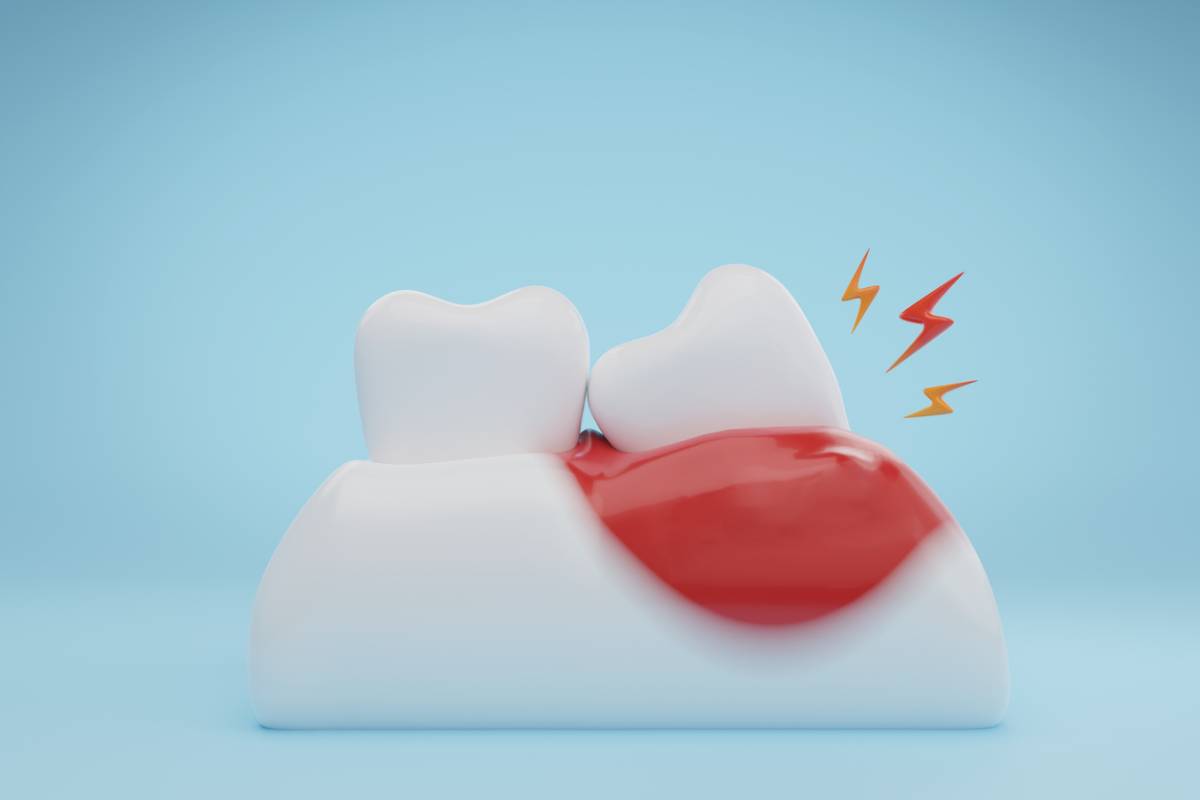Wisdom teeth, also called third molars, are located at the very back of the mouth, both on top and bottom. They are called wisdom teeth because they tend to appear later in life, typically between the ages of 16 and 26. In some cases, wisdom teeth do not cause any issues. However, in many others, due to their location, they can be problematic, causing pain, overcrowdedness, and infections. In this article, we list signs your wisdom teeth are infected and the ways to remedy the issue, including the procedure of extraction by a dental surgeon.
Signs Your Wisdom Teeth Are Infected
Symptoms that might indicate wisdom teeth infection include:
- Pain or sensitivity of the wisdom tooth
- Discoloration or visible brown or black spots on the wisdom tooth
- Tender, red, swollen, or bleeding gums in the area of the wisdom tooth
- Persistent bad breath or bad taste in the mouth that does not go away with brushing
- Fluid oozing from the wisdom tooth or the surrounding tissues
- Pain or swelling of the jaw
- Stiffness in the jaw
- Difficulty speaking, chewing, or opening your mouth
- You have fever or chills in addition to any of the symptoms listed above
If you have any of these symptoms, make an appointment with your dentist as soon as possible. If an infected wisdom tooth is left untreated, fluid-filled cysts can form around it. This can cause damage and hollowing of the jawbone, the spread of the infection to the surrounding teeth, gum disease, and other issues. On top of that, the infection can travel through your bloodstream to other organs. Bacterial infections in the mouth can lead to issues with the heart, lungs, throat, and even brain.
Why Do Wisdom Teeth Get Infected?
Due to their location in the mouth, wisdom teeth are prone to infections and can cause issues with the surrounding teeth and tissues. In some cases, it can be challenging to properly clean your wisdom teeth. As a result, plaque and bacteria build up in those places, causing cavities, tooth decay, and gum disease.
Sometimes, a wisdom tooth erupts only partially, and a part of it remains covered by the gum. This is called a partially impacted wisdom tooth. This can be painful on its own, but it also creates additional obstacles for cleaning and pockets where bacteria and food debris can linger. Such teeth can not adequately participate in the chewing process.
Fully impacted teeth are entirely covered by the gum tissue. This happens when there is not enough space for the tooth to erupt. Such teeth can also be positioned at the wrong angle, causing additional issues. In addition to inflammation, impacted teeth can cause radiating pain in the head, jaw, and face.
Infected Wisdom Teeth Treatment
Depending on the cause of the issue, infected wisdom teeth can be treated by:
- Cleaning the area by the dentist and improving oral hygiene in the future
- Dental fillings if the tooth is fully erupted from the gum
- Taking a course of antibiotics
- Extracting the tooth
In some cases, especially if your wisdom tooth is not fully erupted or entirely covered by the gum, the most effective and safest course of action is extraction. Additionally, if oral hygiene in the area is challenging due to the tooth’s position or immunity being low, the infection might easily come back after treatment. Tooth extraction prevents recurrent infections.
When Do I Need Wisdom Teeth Extraction?
For some people, wisdom teeth do not cause any issues and do not need to be removed. However, wisdom teeth extraction is a standard procedure, and sometimes, it is the best way to remedy the problems that wisdom teeth can cause. Your dentist might suggest extraction in the following situations:
- Your wisdom teeth are infected or show signs of decay and compromise the health of the nearby teeth and gum tissue
- Your wisdom teeth crowd or damage nearby teeth
- Your wisdom teeth grew only partway through the gums and cause pain and inflammation in the surrounding tissues
- You have impacted wisdom teeth (trapped under the gum), which causes pain, infections, or cysts. This condition can also damage the roots of the surrounding teeth or compromise bone support.
- You have repeated infections or cysts of the soft tissue surrounding your wisdom teeth.
Make an Appointment Today
If you have signs of wisdom teeth infection, make an appointment with one of our dental surgeons today. The specialists at East Highland Dental will carefully examine your case and offer you the best course of treatment. We are looking forward to welcoming you to our office.

